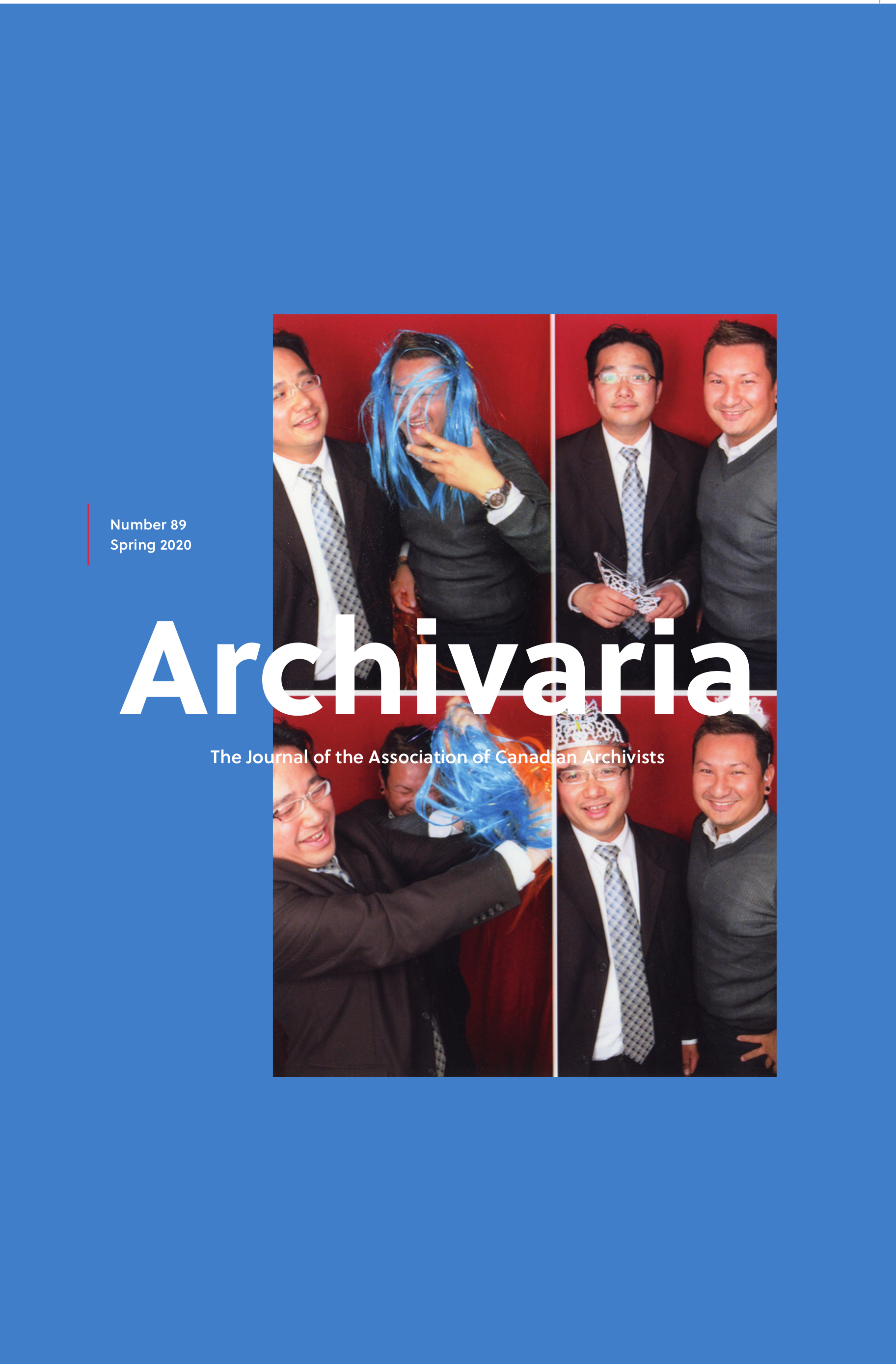Telling Stories from Montreal’s Negro Community Centre Fonds: The Archives as Community-Engaged Classroom
Abstract
Working in the classroom alongside teaching faculty is an ideal way to bridge the gap between undergraduate education and archival research and to reach students who might never venture into the archives of their own accord. This article offers a sustained reflection on one way that historical archives can be placed at the centre of undergraduate education. It also considers how this engagement can open up spaces for public remembrance, particularly for marginalized “source” communities. The ongoing relationship between communities and the archives that they produce is vitally important. The focus here is on the intermediate history course Telling Stories, held in 2017, and developed around the Negro Community Centre/Charles H. Este Cultural Centre Fonds housed in Concordia University Library’s Special Collections. The Negro Community Centre was the hub of Montreal’s English-speaking Black community from 1927 until it closed in 1992. The course was timed to coincide with the public launch of this major new archival fonds, giving the students the honour of being the first researchers to ever go through these boxes. The idea of the course was thus simple: what can we learn from the history contained in these boxes and how can we return this history to the community? Allowing younger generations to make meaning from the archives and leave their marks there is a way to open spaces for new Montreal (hi)stories to be written.
RÉSUMÉ
Travailler dans une salle de classe adjacente à une faculté d’enseignement est la manière idéale de combler le fossé entre les études universitaires de premier cycle et la recherche archivistique et de rejoindre des étudiants qui, autrement, ne se seraient jamais aventurés d’eux-mêmes dans les archives. Cet article propose une réflexion soutenue sur une façon de mettre les archives historiques au coeur des études universitaires de premier cycle. Il aborde également comment cet engagement peut ouvrir des espaces de commémoration publique, notamment pour les communautés « sources » marginalisées. La relation continue entre les communautés et les archives qu’elles produisent est d’une importance vitale. L’accent est mis ici sur le cours d’histoire intermédiaire Telling Stories, donné en 2017, développé autour du fonds Negro Community Centre/Charles H. Este Cultural Centre, conservé à la bibliothèque des collections spéciales de l’Université Concordia. Le Negro Community Center a été le centre de la communauté noire anglophone de Montréal de 1927 jusqu’à sa fermeture en 1992. La programmation du cours s’est faite de façon à coïncider avec l’ouverture officielle de ce nouveau fonds archivistique important, offrant aux étudiants l’honneur d’être les premiers chercheurs à consulter ces cartons. L’idée derrière ce cours était simple : qu’y avait-il à apprendre de l’histoire contenue dans ces boîtes et comment est-il possible de retourner cette histoire à la communauté? Permettre aux générations futures de saisir la signification des archives et d’y laisser leur marque est une façon d’ouvrir de nouveaux espaces qui permettront l’écriture de nouvelles histoires de Montréal.
Authors of manuscripts accepted for publication retain copyright in their work. They are required to sign the Agreement on Authors' Rights and Responsibilities that permits Archivaria to publish and disseminate the work in print and electronically. In the same agreement, authors are required to confirm that "the material submitted for publication in Archivaria, both in its paper and electronic versions, including reproductions of other works (e.g. photographs, maps, etc.) does not infringe upon any existing copyright." Authors of manuscripts accepted for publication retain copyright in their work and are able to publish their articles in institutional repositories or elsewhere as long as the piece is posted after its original appearance on archivaria.ca. Any reproduction within one year following the date of this agreement requires the permission of the General Editor.





